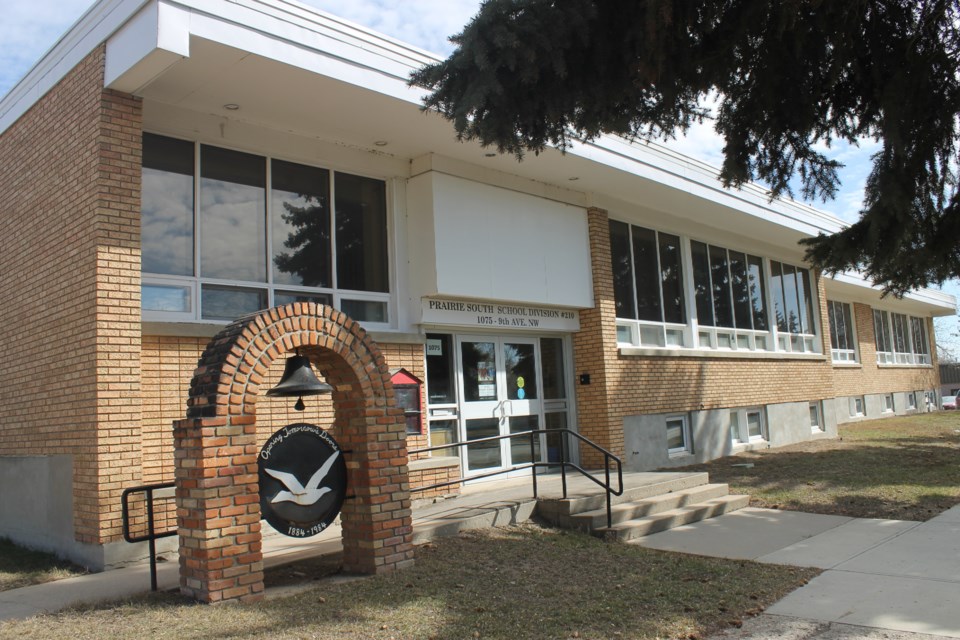Most parents who responded to an online survey about outcome-based education and reporting said they are dissatisfied with the teaching method and thought it had a negative effect on student motivation.
However, a slim majority of teachers who also responded said they were upbeat about using outcome-based education even though some of them considered taking time off — or retiring — due to the stress of implementing the system.
The survey results were presented during the Prairie South School Division’s (PSSD) most recent board meeting. Moose Jaw mothers Jan Nelson, Cheryl Searle and Lindsay Newsham shared the concerns they have with outcome-based education (OBE) and outcome-based reporting (OBR) and presented their research showing that this particular system is flawed.
Online survey
Nelson and Searle conducted the online survey from Nov. 12 to Dec. 6, 2019 seeking anonymous feedback from parents, teachers, division staff, students and concerned citizens about outcome-based education. While the survey was open to everyone in both school divisions in Moose Jaw, only two entries came from the Catholic division, so those results were excluded.
Eighty-nine people took the survey, including 61 parents, 22 teachers, two PSSD staff, and four concerned citizens. The women acknowledged in the survey that the sample size was small since their ability to contact teachers and parents was limited.
However, they still hoped the results would provide a starting point for discussion and would encourage PSSD board trustees and administration to further study and evaluate the effects of outcome-based education and reporting on students’ learning, on parent engagement in student learning, and on teachers’ workload.
Teacher feedback
Of the 22 teachers who responded, 59 per cent said they were happy with OBE/R, but time constraints were an issue for 59 per cent of educators and 31 per cent said they took time off — or considered doing so — due to the stress from initiating OBE/R.
Meanwhile, 45 per cent have some concerns about the accuracy of OBR, how it is communicated with parents and students, and how it affects student motivation.
They were also given the opportunity to provide comments; those were summarized at the end of the report
Parent feedback
Of the 61 parents or guardians who responded, 79 per cent said they were dissatisfied or very dissatisfied with the current OBR marking system and none wanted it used in grades 9 to 12. However, six per cent said it could be used from kindergarten to Grade 8, while 48 per cent said it could be used from kindergarten to Grade 5.
Eighty-four per cent thought OBE/R had negative effects on student motivation, compared to 32 per cent of teachers. Parents also reported high concerns with the accuracy of OBR and how it was communicated (80 per cent, respectively).
“Some teachers commented that parents … should leave decisions about education to the experts, but this level of dissatisfaction with the current system does need to be recognized and addressed,” the report said.
The comments from parents show a high level of frustration with OBR and some of the principles of OBE, the report added. Those who were pleased with OBE/R seemed to have children in the younger grades.
They were also given the opportunity to provide comments; those were summarized at the end.
An overwhelmed teacher
Nelson highlighted one comment from a middle-years teacher during the board meeting.
“I have found that increasingly as my career progresses, I am covering less of the curriculum outcomes in the year (while) the kids (who) come to me have also not mastered or been proficient in prior outcomes and the prerequisites in learning a new outcome despite having come from classrooms with excellent, hardworking teachers,” the teacher wrote.
Kids are less motivated to do well or even care, while parents find the reporting meaningless, the teacher continued. A beginning student needs intensive supports early, while it’s unrealistic to expect teachers to plan for and teach five learning levels by themselves. Meanwhile, the teacher wrote that they were tired of being told to do their best and give 100 per cent every day since that was all that could be done.
“… What I do know is I am literally overwhelmed, and if I’m overwhelmed, imagine how much kids feel,” the teacher said. “It is extremely exhausting and time-consuming and not a good use of my precious time (to continually assess students). It takes time away from allowing me to work with students, prepare for students and teach students.”
The teacher noted that educators know what to do but aren’t being allowed to do it.
“…I feel talked down to and over by people who have not been in a classroom in at least 10 years and have … no real idea what it is like,” the teacher added. “…Let’s allow people to teach. Let your professionals hit targets in their own way and stop the constant assessing and invest in people.”
The next PSSD board meeting is Tuesday, Feb. 4.




